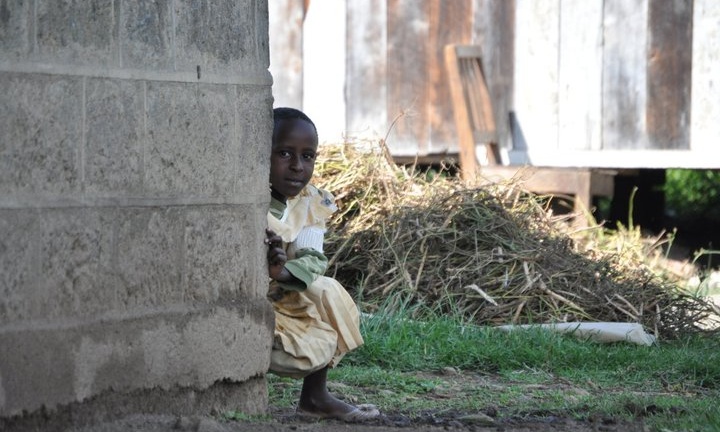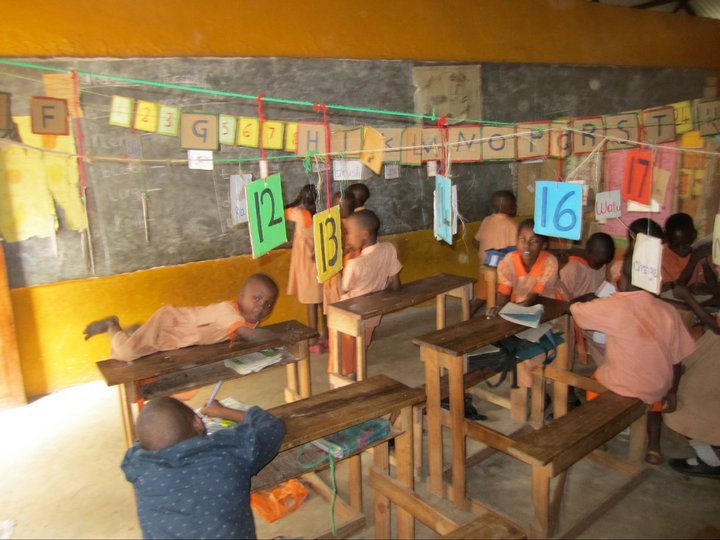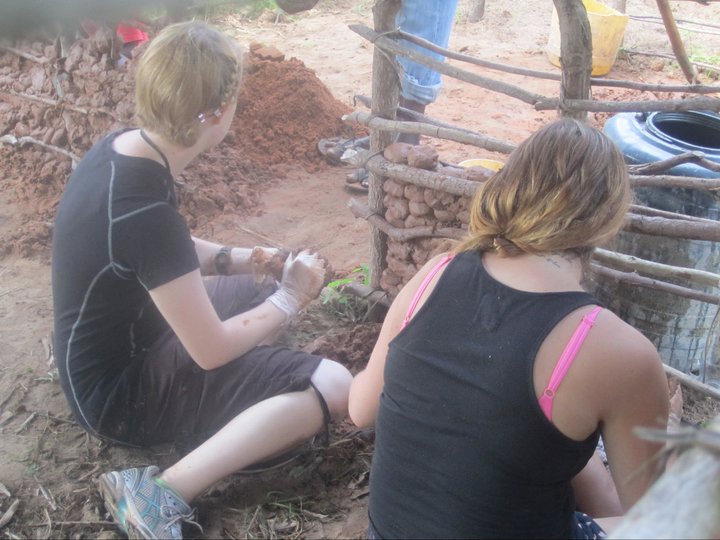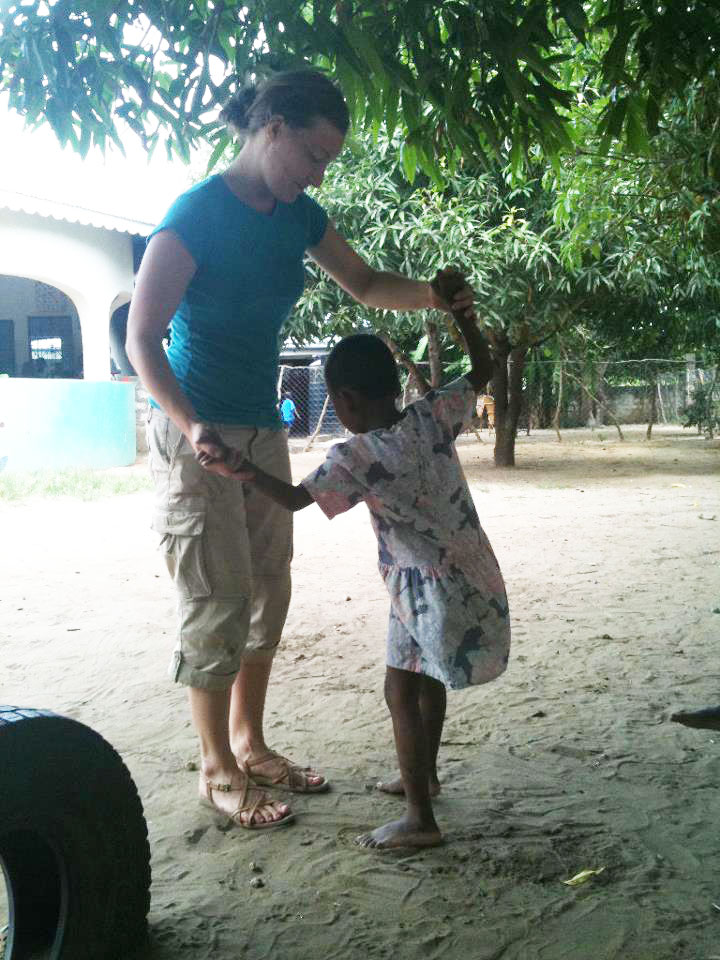
A voluntourist is someone who volunteers while traveling, usually for short-term. While it can be a rewarding way to give back to others, many times volunteers don’t benefit the community they’re trying to help. Instead they unknowingly contribute to the unethical practices of the voluntourism industry.
![]() By: Heather Newgen | Twitter: @hnvoluntourist
By: Heather Newgen | Twitter: @hnvoluntourist
Voluntourism sounds like a noble act, but the popular trend of volunteering while on vacation has come under fire. Some critics believe short-term volunteers can’t make a difference, while others say that unskilled helpers are doing jobs they aren’t qualified for. Detractors also think do gooders are taking jobs from locals. It gets worse…there is an increase in corrupt tour companies and orphanages taking advantage of volunteers and exploiting the communities they aim to help. The sad reality is that some of these problems do exist, but that doesn’t mean there isn’t value in voluntourism or voluntourists. The key is to do it responsibly.

SHORT-TERM VOLUNTEERS DO MORE HARM THAN GOOD
People signing up for short volunteer trips are under scrutiny.
Short-term volunteers are wasting time: You might be working on a small piece of a larger project, so make sure there is a long-term goal for the venture that will benefit the local community. As an alternative, consider signing up for something that requires a shorter commitment like a beach clean up or blood drive.
Volunteers take work away from locals: Many organizations can’t afford to hire local workers, and that’s why volunteers are essential. However, it’s important to look for sustainable programs where volunteers don’t do projects locals can do. Good volunteer work means you are adding value. For instance, don’t build a school if that takes away jobs from locals. Instead, work with the school board by providing expertise that the local community may not have.

Classroom in a Kenya Orphanage. Photo courtesy of Daniela Yager.
Unskilled workers aren’t necessary: An unskilled voluntourist can be of assistance by helping the local staff and trained volunteers. For instance, don’t offer to teach English if you don’t have the experience, but you can help out in the classroom. It’s essential you do not perform projects that you are not qualified for, because that is not being a responsible volunteer. You should also assess your own skills and seek opportunities that align with your skill set.
Short-term volunteers shouldn’t work with kids. It’s okay to be supervised while interacting with children, but never left alone with them. Assist the staff instead. This keeps locals in charge, which creates less confusion for the kids and minimizes attachment issues.
VOLUNTEER’S INTENTIONS ARE MISPLACED
Volunteers are being accused of going abroad to work in developing countries for every reason other than helping the community.
Consumer approach: It is crucial to ask yourself why you really want to volunteer, and if it’s for the right reasons. If you’re doing it solely for the purpose of enhancing your resume, getting a new profile pic, or you want others to think you’re amazing for volunteering, then you should rethink your decision.
RELATED: Project Angel Food-Amazing Volunteer Experience
To be a responsible voluntourist, it’s important to learn the needs of the community. Never assume you know better than they do. Your job should be assisting them achieve their goals, not trying to fix problems you know nothing about. There can be a fine line between helping and interfering. Always be wary of imposing your beliefs on a community. Good intentions don’t always equal good outcomes.

VOLUNTEERS ADD TO THE PROBLEM OF ORPHANAGE SCAMS
There’s a very dark side of voluntourism: It’s unfortunately true that shady programs seem to be popping up more and more now with the purpose of exploiting children to make money off unsuspecting do-gooders. Many unknowingly sign up with dishonest organizations that don’t abide by ethical practices. A voluntourist can unintentionally contribute to the problem of fraudulent orphanages and other unscrupulous schemes.
RELATED: Orphanage Tourism in Nepal: What You Should Know--UNICEF Report
There have been several reports, especially in Cambodia, where kids are recruited away from their families with promises of a better life and education. Instead, they live in orphanages and are paraded around for tourists to see. This tugs on the heartstrings of travelers who will either donate time, money or both. No one benefits except for the person running the scam.
OTHER ISSUES
I cannot stress enough how important it is to research the tour companies you’re considering, and really do your homework on everything from where your money goes, to what is expected of you as a volunteer. Look for organizations that are non-profit rather than profit. When it’s for profit, there is usually a significant motivation change in the service aspect of the mission. Also don’t go with an organization that has preconceived notions of what a community needs. The residents know what they need. They just need assistance in obtaining it.
RELATED: Are you a skilled volunteer and don't even know it?
The issues within the industry also have to do with organizations being poorly run, allowing unskilled workers to do tasks only trained professionals should do, and not doing proper screening and background checks on volunteers. The problem with most for profit organizations is that they will take any voluntourist, but with many non-profit organizations, they have the luxury of selecting applicants based on people who they think will be best suited for that particular environment and project. But you still need to be careful and ask a lot of questions before signing up.

Volunteer making friends in Kenya. Photo courtesy of Daniela Yager.
In addition, organizations need to accurately identify the needs of the community, and local partnerships are a great way for that to take place. However, the partnerships need to be built in a responsible way. If the local partners have an ownership of the projects and sit on the board of the companies, then you start forging real relationships within the community.
FINAL THOUGHTS
There is no doubt that voluntourism and a voluntourist can have a positive influence for volunteers and the local communities, but only when done in an ethical manner. It can instill a real sense of giving back and getting more involved in human rights issues, but it goes back to what activities are performed on the ground. Good volunteer work needs to be done in order for this to happen.
We here at the Voluntourist also encourage giving back in your own communities as well. It’s always amazing to gain a new perspective by traveling and seeing other locations in the world, but it’s also good to lend a helping hand to your neighbors.
